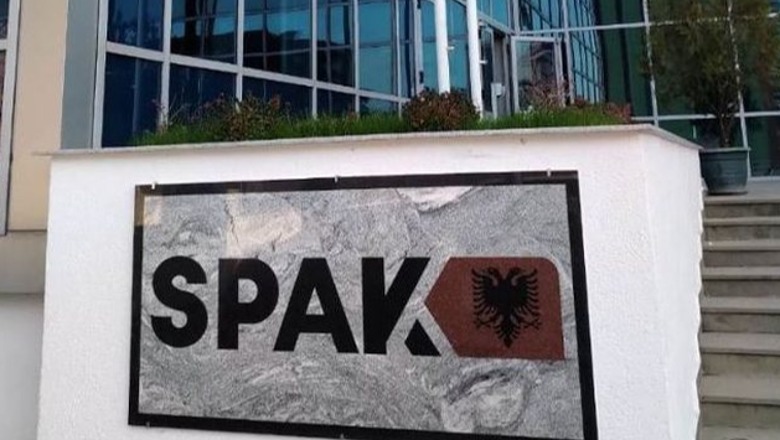SPAK Chief raises concerns about corruption among judges and prosecutors who passed vetting process

Altin Dumani, the head of Albania’s Special Structure Against Corruption and Organized Crime (SPAK), expressed concerns about corruption among judges and prosecutors who have passed the vetting process and remain in the judicial system. Speaking at an event organized by the Albanian Helsinki Committee (KShH), ALTRI Center, and Friends of Europe (FoE) under the “Civil Society Against Corruption” initiative funded by the European Union, Dumani revealed that SPAK has initiated criminal proceedings against numerous judicial officials at various levels.
“Our greatest concern is not those who were dismissed during vetting but those who passed it and continue to serve. Whenever we have indications, we have a duty to initiate criminal proceedings,” Dumani stated.
Why is this important: The vetting process, launched after the 2016 judicial reform, aimed to cleanse Albania’s justice system of corruption and incompetence. As the transitional re-evaluation process concludes this December, concerns over corruption among vetted officials highlight gaps in implementation and ongoing systemic issues. Of the 793 judges and prosecutors evaluated to date, 363 were confirmed in their positions, 266 were dismissed, and 113 had their vetting process terminated or suspended. SPAK’s investigation into these issues underscores the ongoing challenges in ensuring accountability and integrity within the judicial system.
Context: During the discussion, Dumani emphasized that SPAK has utilized various methods, including wiretapping, in its investigations into judicial corruption. However, Albanian law imposes restrictions on wiretapping for corruption-related offenses.
“We carefully review vetting decisions. When indications of corruption arise from these decisions, we initiate criminal proceedings. We have also applied anti-mafia laws and confiscated assets in certain cases involving dismissed individuals,” Dumani explained.
Recent data presented at the event included monitoring reports on the activities of the High Judicial Council (KLGJ), the High Inspectorate of Justice (ILD), and the High Prosecutorial Council (KLP) for the January-December 2023 period. These findings shed light on the performance of Albania’s judicial oversight bodies and the outcomes of the vetting process.
Key developments:
- Anti-Mafia Law applications: SPAK has applied anti-mafia legislation in cases involving judicial corruption, leading to asset confiscations.
- High-level targets: Criminal proceedings have been initiated against judges from the Constitutional Court, Supreme Court, Court of Appeals, and judicial police officers.
- Arrests in Elbasan: On Monday, SPAK announced the arrest of two former judges as part of a large-scale operation targeting criminal activity in Elbasan.
“We aim to improve investigations and avoid errors. Administrative findings from the vetting process provide a solid foundation for gathering evidence,” Dumani said, highlighting SPAK’s commitment to leveraging administrative findings in criminal cases.
What’s next: As the vetting process concludes, SPAK’s focus on investigating corruption among those who passed the process signals a continued commitment to reforming Albania’s judiciary. However, these efforts also highlight the need for stronger oversight mechanisms to ensure that judicial integrity is upheld long-term.


